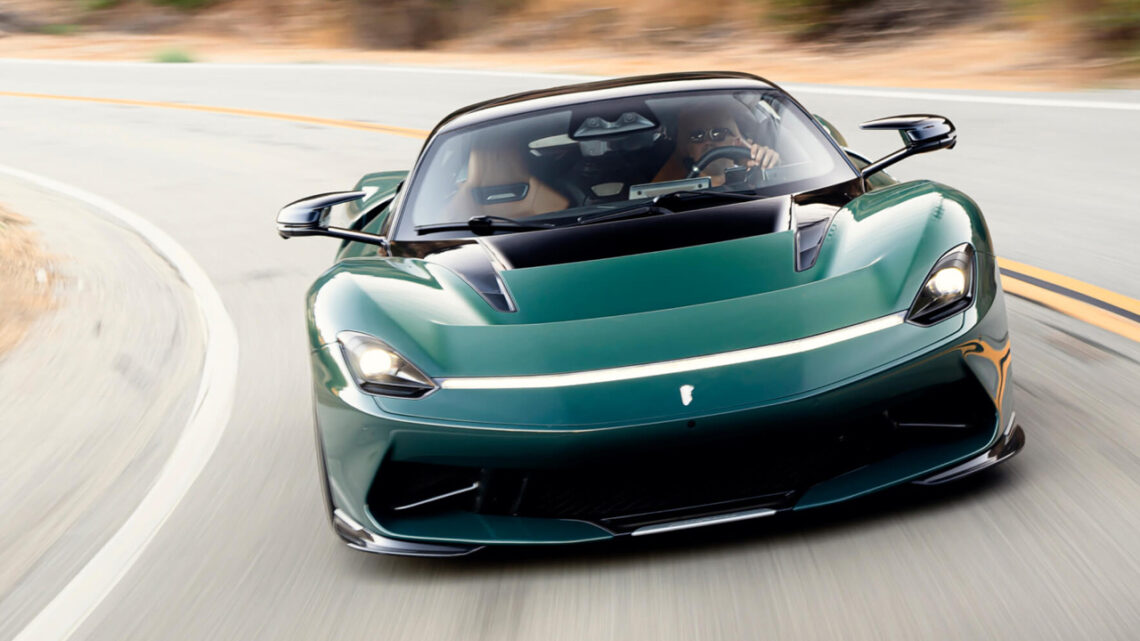Fastest Electric car rival Formula One in speed, boasting rapid acceleration thanks to their powerful electric motors. Ever wondered, ‘What’s the fastest hybrid car?’. Tesla exemplifies this evolution with its Model S lineup.
The P100D stunned with a 0 to 60mph time of 2.4 seconds, yet, Elon Musk pushed boundaries further with the 2021 Model S Plaid, boasting over 1000bhp and a sub-two-second sprint.
Table of Contents
Our list of the world’s fastest EVs showcases this progress, including production models and prototype race cars with jaw-dropping performance.
The electric revolution is accelerating – buckle up for the ride.
Understanding Electric Vehicle Performance
If you’re seeking speed, acceleration, and an extra dash of excitement during your daily commute, considering the performance of the best electric cars becomes pivotal. Performance, a crucial determinant influenced by factors like horsepower, top speed, acceleration, and drive type, inevitably links to the price tag of the vehicle. A higher performance luxury electric vehicle typically comes with a premium price.
Our approach to guiding you through the electric car landscape involves a meticulous, data-driven analysis of four key performance aspects, ensuring our recommendation aligns with your specific needs.
While some might solely focus on speed when evaluating performance, we delve deeper, taking into account Horsepower, Top speed, Acceleration, and Drive Type for a more comprehensive understanding.
- Horsepower, a measure of the motor’s power output, significantly impacts an electric vehicle’s performance. Electric cars with higher horsepower generally boast more potent batteries, contributing to a heightened sense of power and acceleration.
- Top speed, indicating the maximum velocity an electric car can achieve, becomes another dimension of performance consideration. Electric cars that generate mind-boggling speeds often come at a higher cost.
Measuring the time it takes for a car to go from a standstill to 60 seconds, Acceleration showcases the quickness inherent in EVs due to their instant torque.
Finally, Drive Type becomes a crucial factor influencing handling and performance, albeit at an additional cost. Our comprehensive analysis ensures your electric vehicle recommendation aligns seamlessly with your criteria, offering a blend of speed, acceleration, and performance tailored to your preferences.
17 World Quickest Electric Cars
McMurtry Speirling
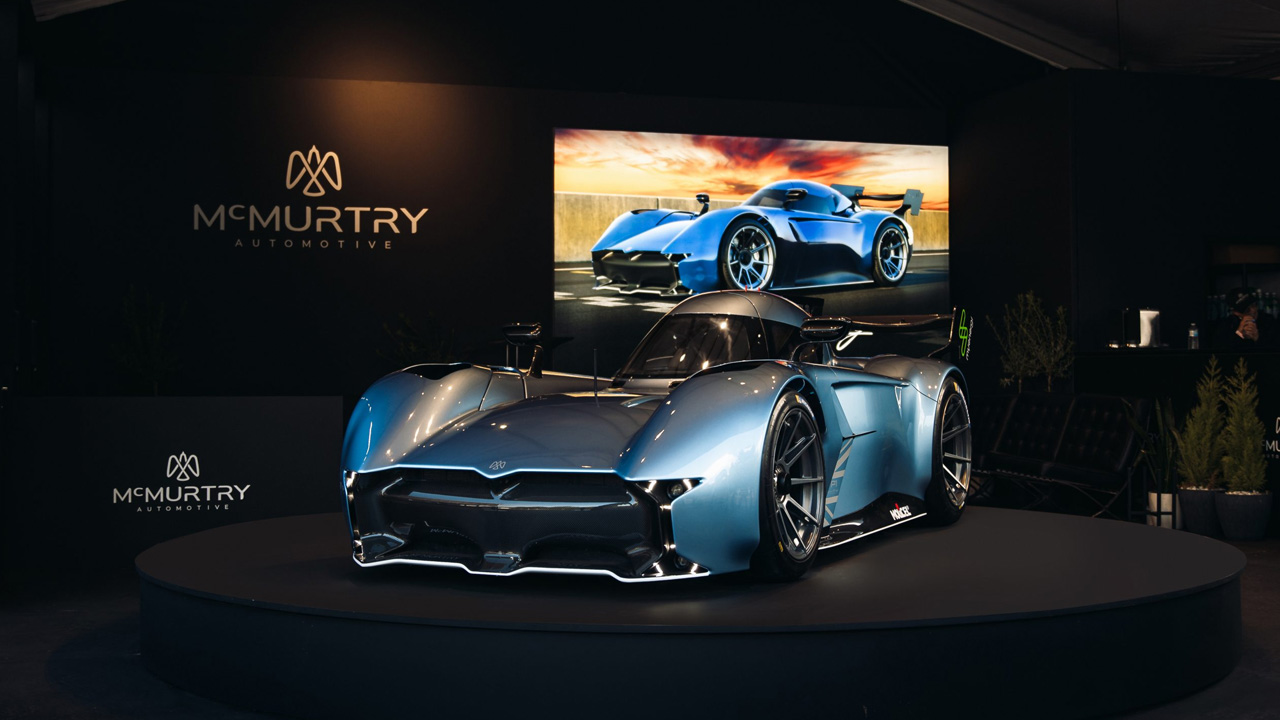
- Power: 1,000bhp
- 0-62mph: 1.5 seconds
- Max speed: 150 mph
The McMurtry Speirling, a single seat electric racer, broke the Hillclimb record at the 2022 Goodwood Festival of Speed, outpacing the Volkswagen ID. R. With 1000 brake horsepower and feather-light weight, it accelerates 0 to 62 in 1.5 seconds and hits 150 miles per hour.
Its unique fan generates 2000kg of downforce, doubling its weight, akin to sticking to the Dartford tunnel ceiling. Traditional aero features enhance cornering stability. This powerhouse of a car is a rarity, even for Mark Zuckerberg.
Aspark Owl
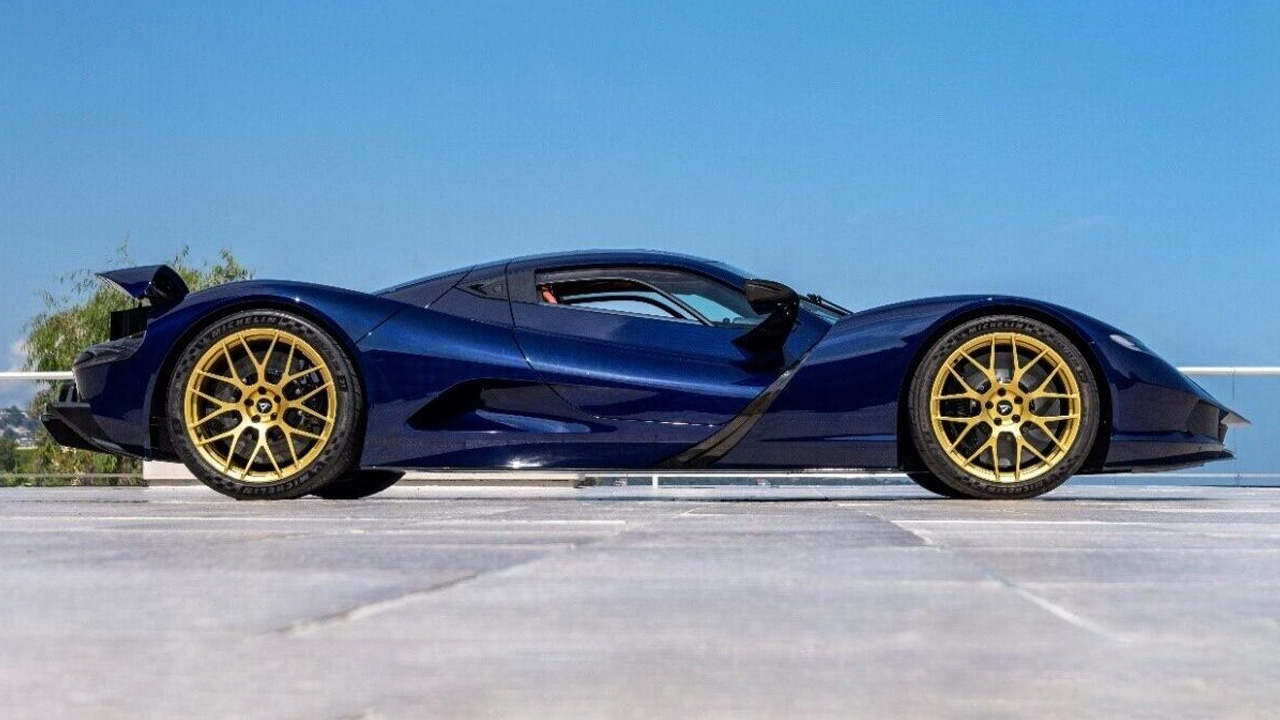
- Power: 1,953bhp
- 0-62mph: 1.91 seconds
- Max speed: 256 mph
Aspark aims to stand out in the electric hypercar realm with its Owl model. Similar to the Nevera and Battista, it boasts a striking design, a bespoke platform, and a motor at each wheel, delivering a staggering 1,953bhp. Accelerating from 0 to 62mph in 1.91 seconds and reaching a top speed of 256mph, it competes for the title of the ultimate EV speed machine. Despite its modest 64kWh battery, it offers a respectable 280 miles of range, though where’s the thrill in driving sensibly?
Rimac Nevera
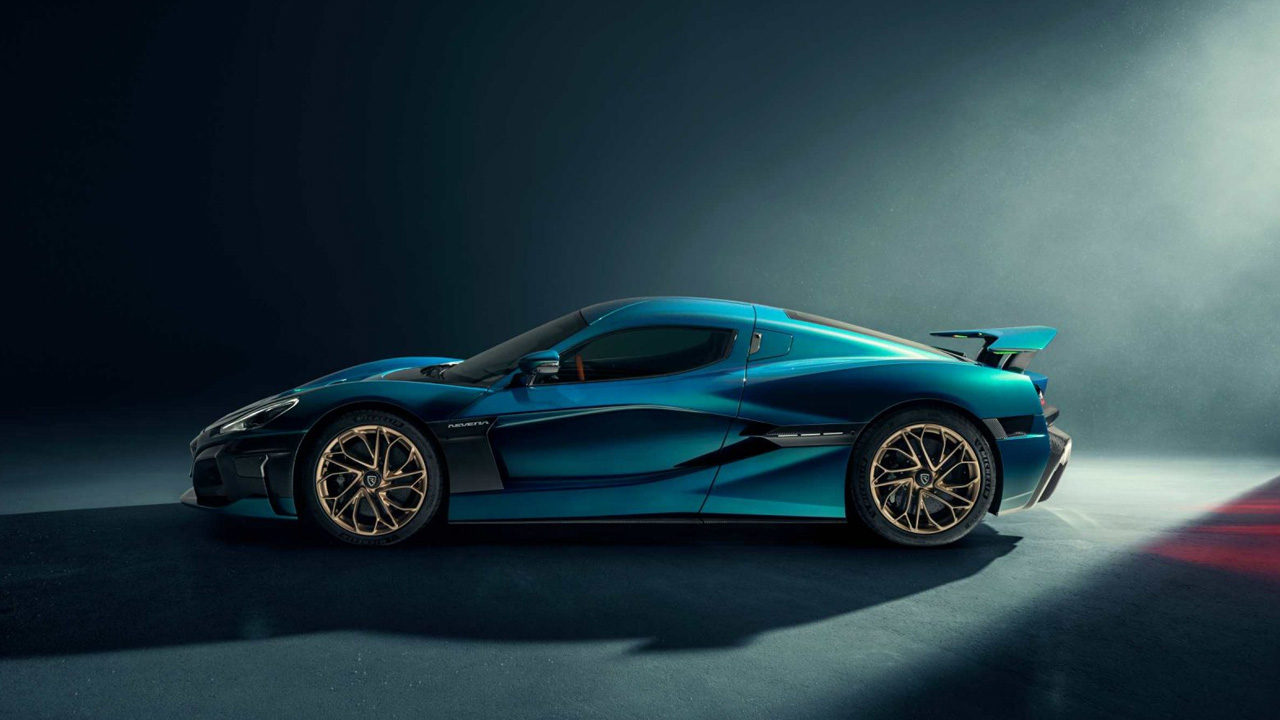
- Power: 1,888bhp
- 0-62mph: 1.81 seconds
- Max speed: 256mph
Rimac may not ring a bell for many, but insiders regard the Croatian brand highly. In a short span of less than 15 years, it has earned recognition for its groundbreaking electric vehicle technology, enticing major industry players for partnerships, notably by developing the world’s speediest car.
The Nevera captivates with its hypercar aesthetics, hefty price, and extensive collection of world records. Limited to 150 units, its rarity and stellar performance justify its $2m+ price tag, making it a prized possession.
Tesla Roadster
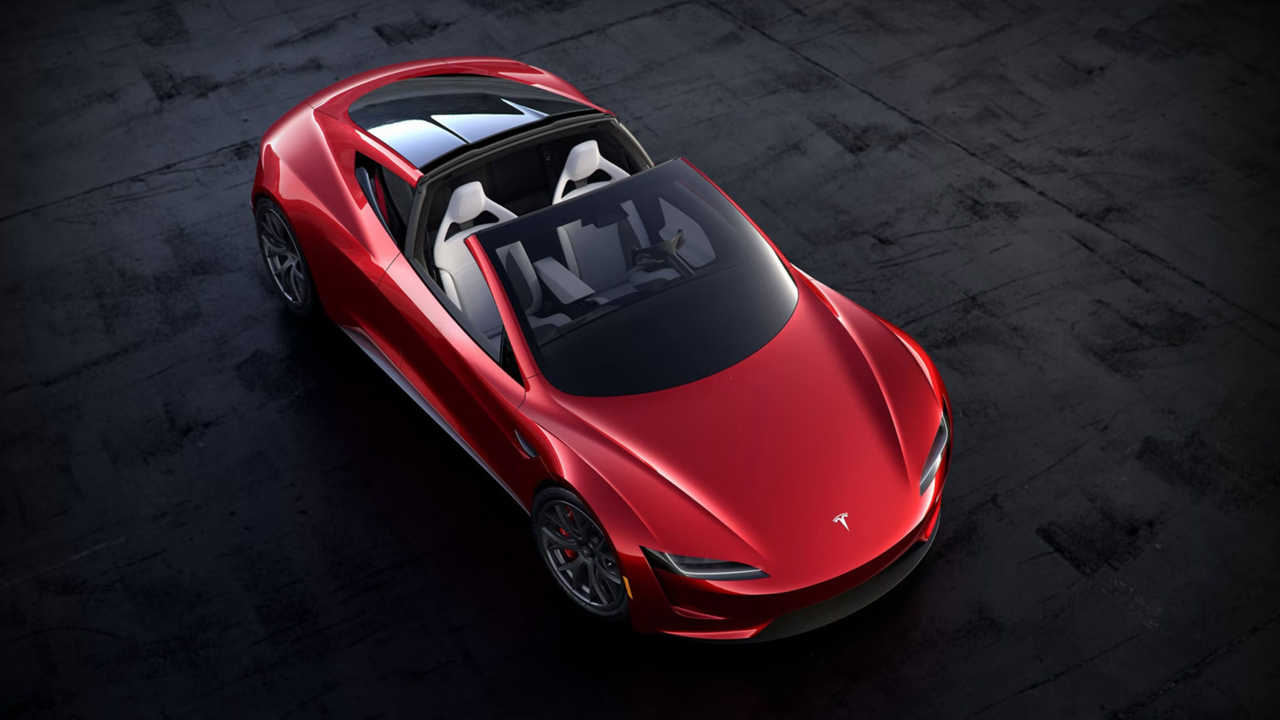
- Power: 1,000bhp+
- 0-62mph: 2.1 seconds
- Max speed: 250mph+
Tesla practically originated the concept of a high-performance electric vehicle with its revolutionary Roadster in 2008, and now it’s attempting a repeat with an entirely new sports car sharing the same moniker.
Similar to many models from the American company, the Roadster dazzles with a cascade of perplexing figures. Tesla claims a 2.1-second 0-62mph time, exceeding 250mph, courtesy of a three-motor powertrain generating over 1,000bhp.
The four-seater allegedly boasts a 620-mile range from a 200kWh battery, overshadowing rivals. However, reserving a Roadster on Tesla’s site doesn’t guarantee timely delivery, with the car already four years overdue.
Deus Vayanne
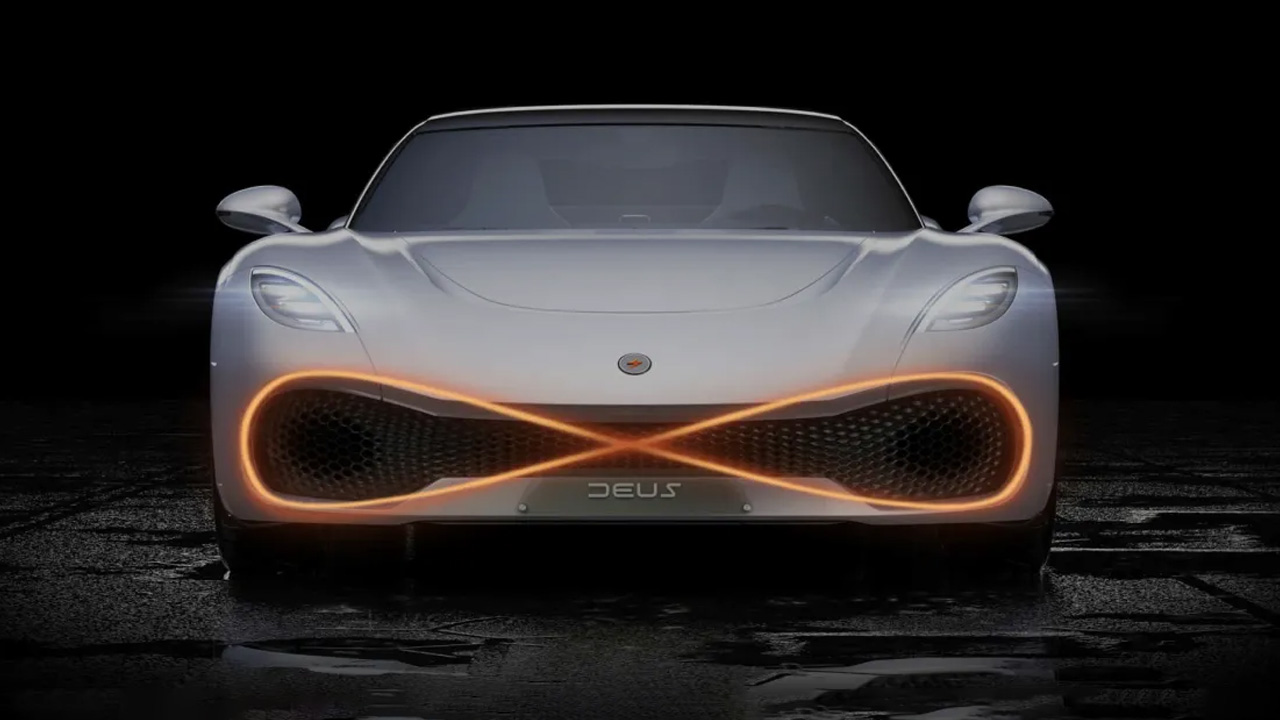
- Power: 2,200bhp+
- 0-62mph: <2.0 seconds
- Max speed: 248mph
Surprised by the Deus Vayanne’s debut at the 2022 New York Auto Show? Us too. Marketing hype surrounded the car, boasting performance that could rival Tesla and Rimac if delivered.
Positioned against the Lotus Evija and Aspark Owl, the Austrian start-up claims dominance in power, exceeding 2200bhp and 1475 lb-ft of torque.
Performance promises include a sub-2-second 0–62mph sprint and a 248mph top speed. With deliveries slated for 2025, securing one of the 99 units means acting swiftly.
Tesla Model S Plaid
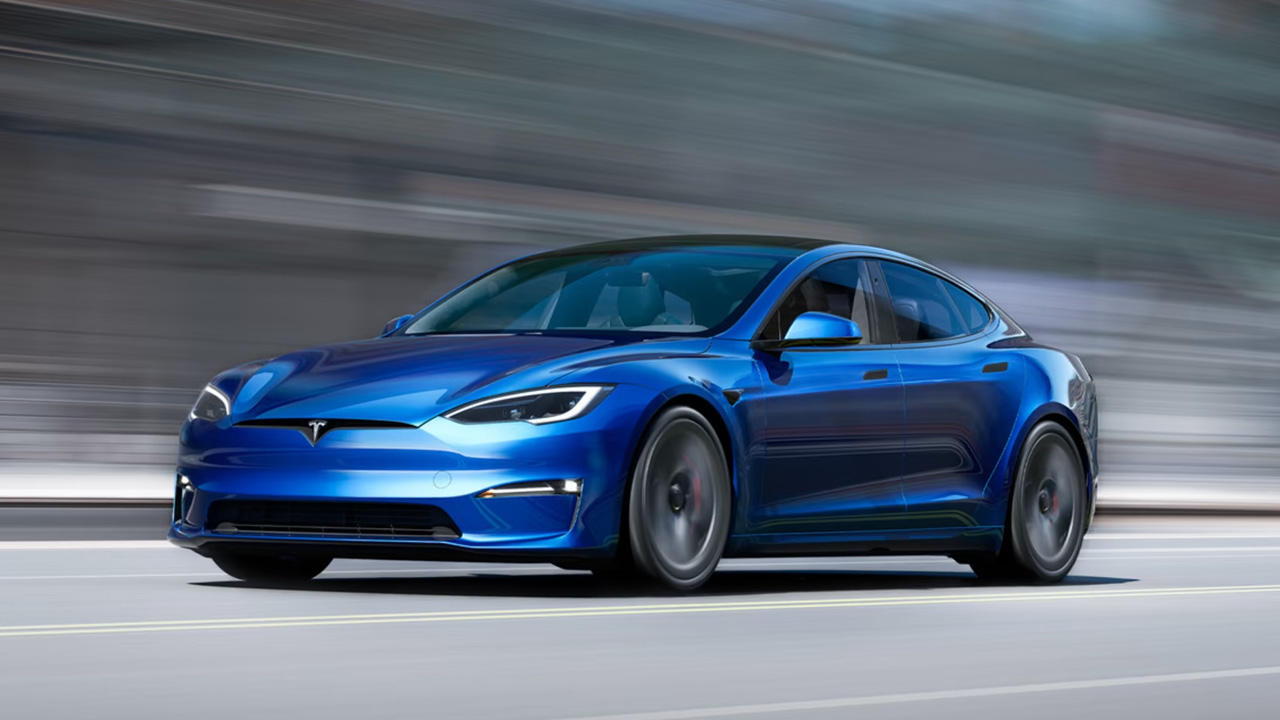
- Power: 1,006bhp
- 0-62mph: 2.1 seconds
- Max speed: 155mph
Tesla’s Roadster remains elusive, but the Model S Plaid is up for grabs – just be prepared for a left-hand drive. Ditch around $100k, and you’ll secure this top-performance sedan with a capacious boot, 373 miles of range, and rapid 250kW charging.
Boasting 1,006 brake horsepower and a jaw-dropping 1.99s 0-60mph time, it’s a speed demon with the option to unlock hardware upgrades for a thrilling 200mph top speed. Not keen on the Plaid? The standard Model S Dual Motor still impresses with a 3.2s 0-62mph and 155mph max speed.
Pininfarina Battista
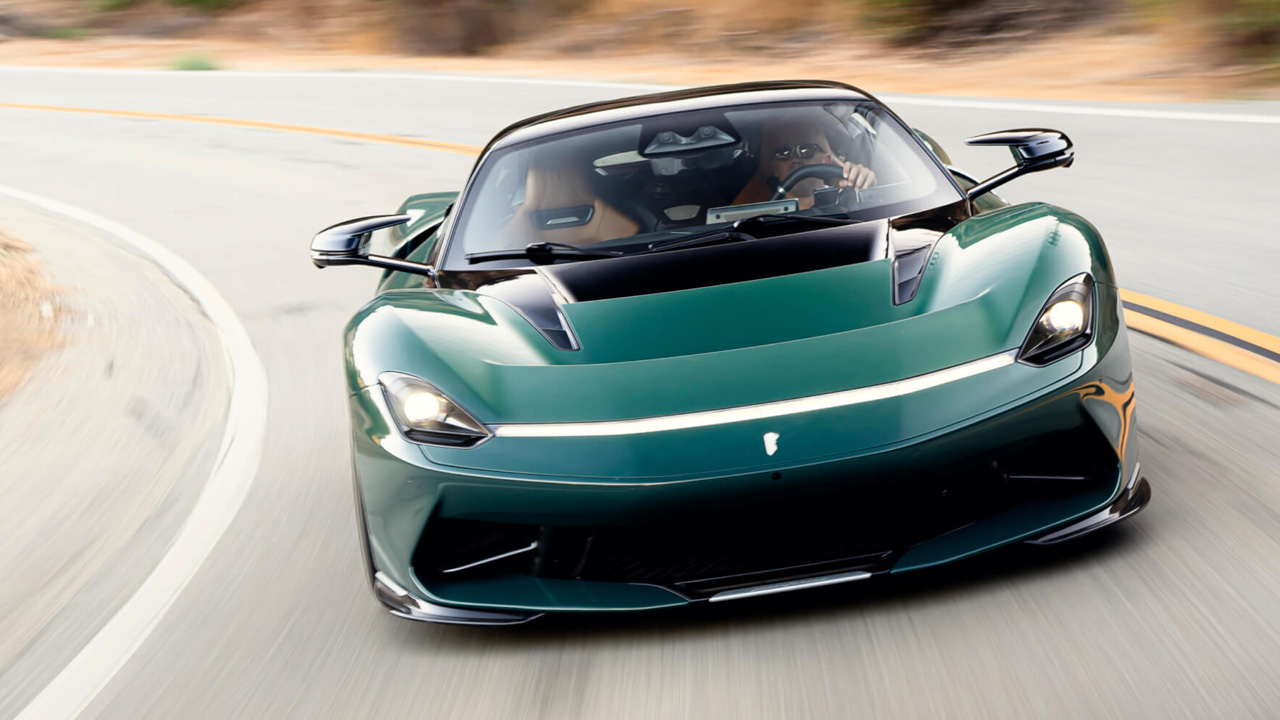
- Power: 1,873bhp
- 0-62mph: 1.86 seconds
- Max speed: 217mph
Pininfarina, renowned for iconic auto designs, ventures into car production with the Battista, enlisting Rimac’s expertise for an electric grand tourer. Sharing the Nevera’s four-motor powertrain, slightly detuned to 1,873 brake horsepower, the Battista achieves a mind-boggling 0-62 in 1.86 seconds and a 217 miles per hour top speed.
The T-shaped 120kWh battery pack, akin to Rimac’s, enhances stability and yields a 300-mile range. A remarkable debut for Pininfarina, pushing the limits of performance and design.
Volkswagen ID. R
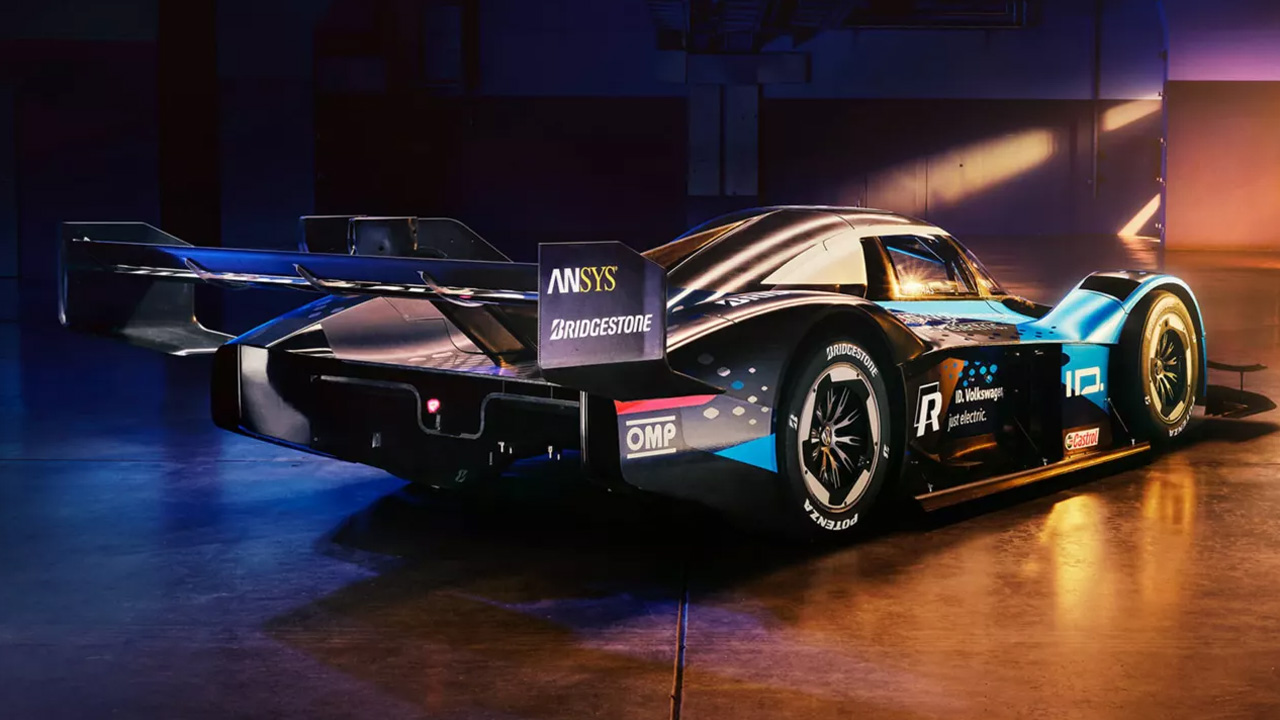
- Power: 671bhp
- 0-62mph: 2.25 seconds
- Max speed: 263.1 mph
The Volkswagen ID.R, born in 2018 as the pinnacle of electric racing, once dazzled with its speed. However, newer entries now surpass it in straight-line performance. Despite its 671bhp output, its feather-light weight propels it to 62mph in just 2.25 seconds, aided by impressive aerodynamics.
It once dominated records worldwide, reigning at Nürburgring, Goodwood, and Heavens Gate until challenged by the McMurtry Spéirling. While its glory may have faded, the ID.R remains a testament to electric speed’s relentless evolution.
Faraday Future FF9
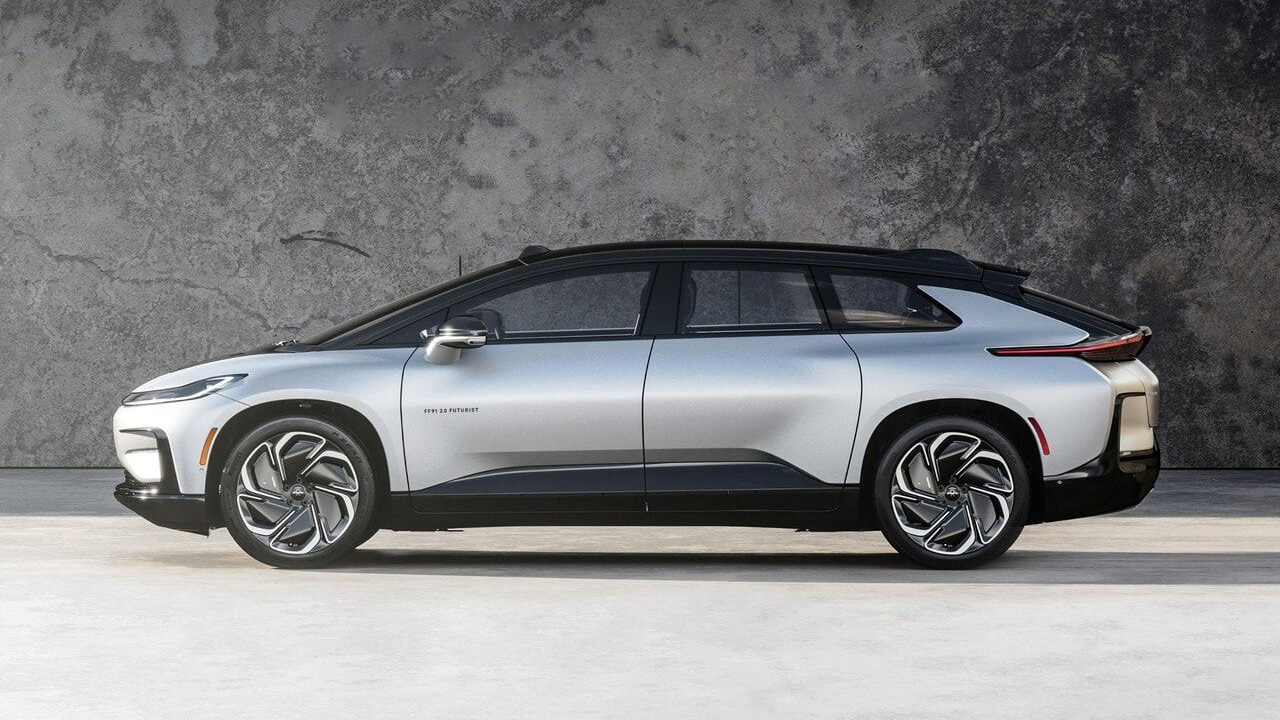
- Power: 1050bhp
- 0-62mph: 2.39 seconds
- Max speed: 155 mph
Faraday Future faced challenges bringing its debut car to market, raising doubts about its sustained success. Under the leadership of Carsten Breitfeld, formerly with BMW i, the FF91 is now nearing production. This SUV, comparable to Tesla’s Model X, features elegant design and premium seating, departing from extravagant elements.
Promised to be exceptionally fast, the initial 0–60mph estimate of 2.39 seconds has been revised to 2.2 seconds. Fueled by a 1050bhp output and a 142kWh battery, the FF91 claims an impressive 381-mile EPA range. Priced at £90,000 to £170,000, it offers competitive features in its class.
Lucid Air
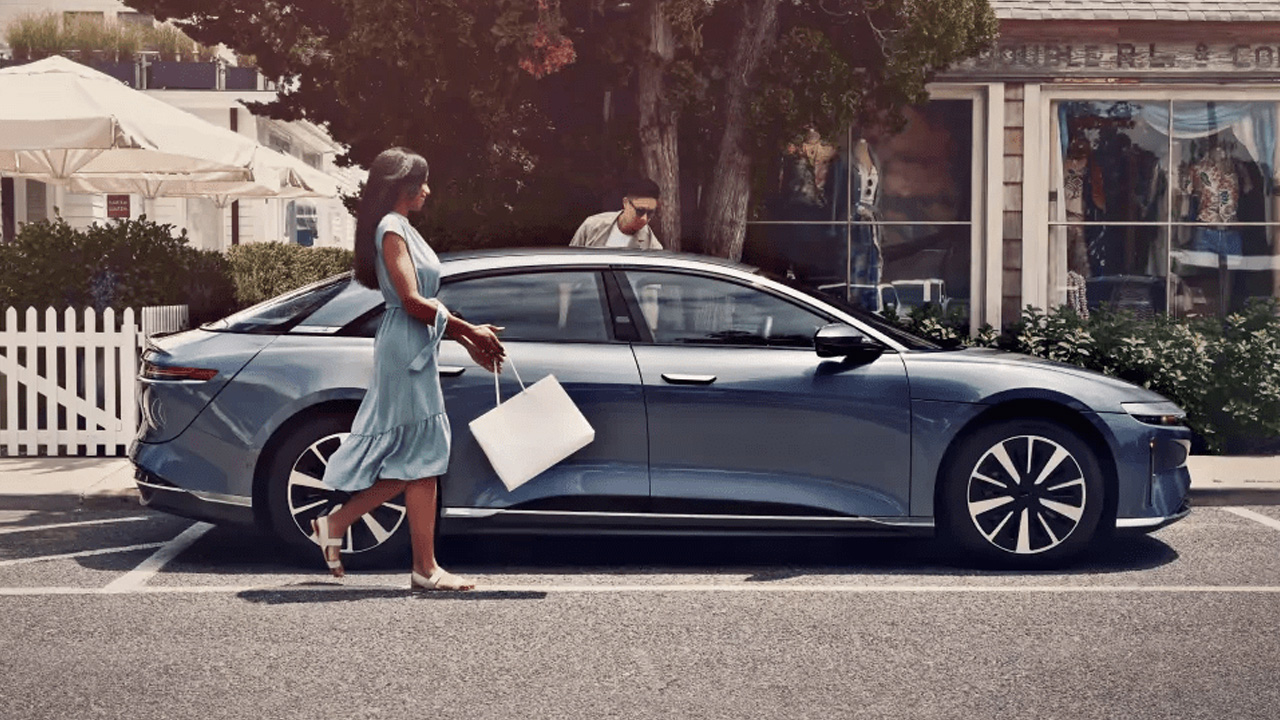
- Power: 1,111hp
- 0-60mph: 2.5 seconds
- Max speed: 168mph
Designed by Peter Rawlinson, Lucid introduced the Air to compete with the Tesla Model S. MotorTrend honored it as the 2022 Car of the Year. The Dream Edition split into Range and Performance variants shortly after launch.
The Performance version boasts 1,111 horsepower and accelerates from 0 to 60 mph in 2.5 seconds, hitting a top speed of 168 mph. With a range of 471 miles, it ranks among the top five fastest electric cars available. Lucid Air isn’t the absolute fastest, but it’s certainly impressive in the EV world.
Tesla Model X Plaid
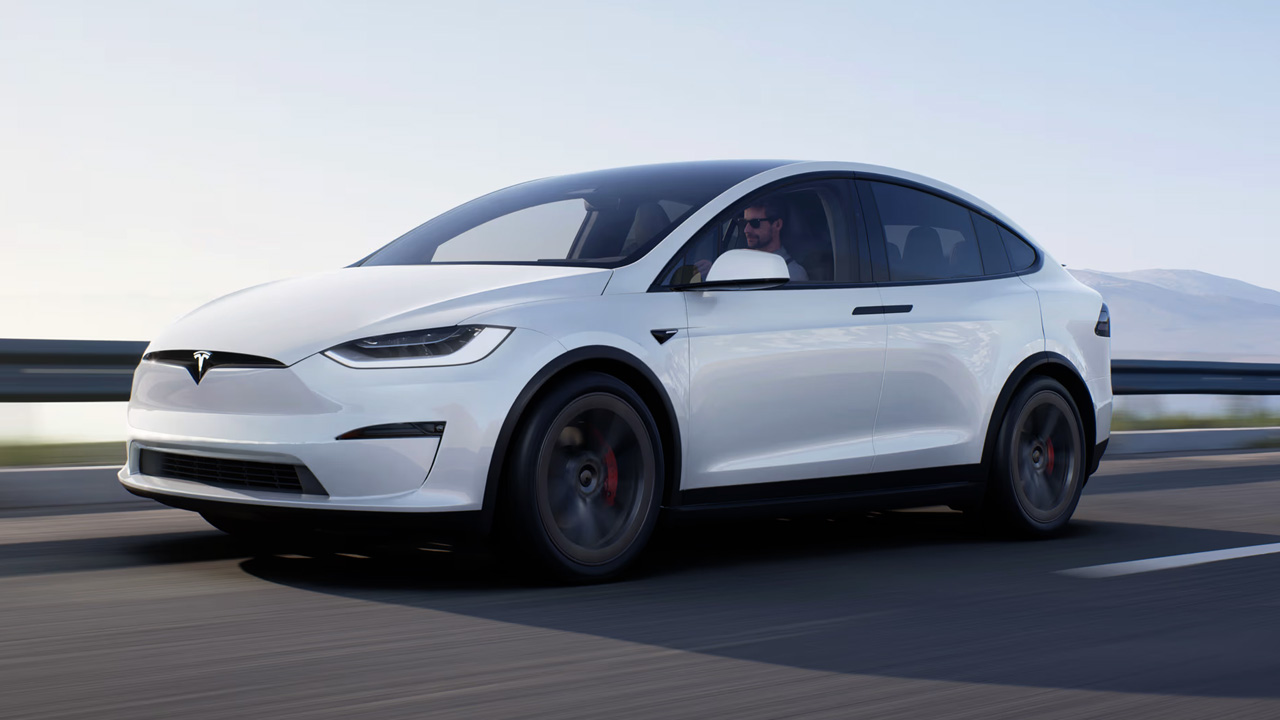
- Power: 1006bhp
- 0-60mph: 2.5 seconds
- Max speed: 163mph
Tesla’s remarkable 0–60mph acceleration isn’t exclusive to its compact models. Even the robust, 2.5-ton Model X Plaid SUV achieves it in a mere 2.5 seconds, courtesy of the shared tri-motor powertrain with the Model S Plaid, boasting an impressive 1006bhp.
With a top speed of 163mph, this SUV offers practicality with a spacious boot, accommodating seven passengers comfortably. Sporting a generous 333-mile range, it extends possibilities beyond city limits. Notably, Tesla’s attention-grabbing ‘falcon-wing’ rear doors add a touch of spectacle, perfect for turning heads during school drop-offs.
Nio EP9
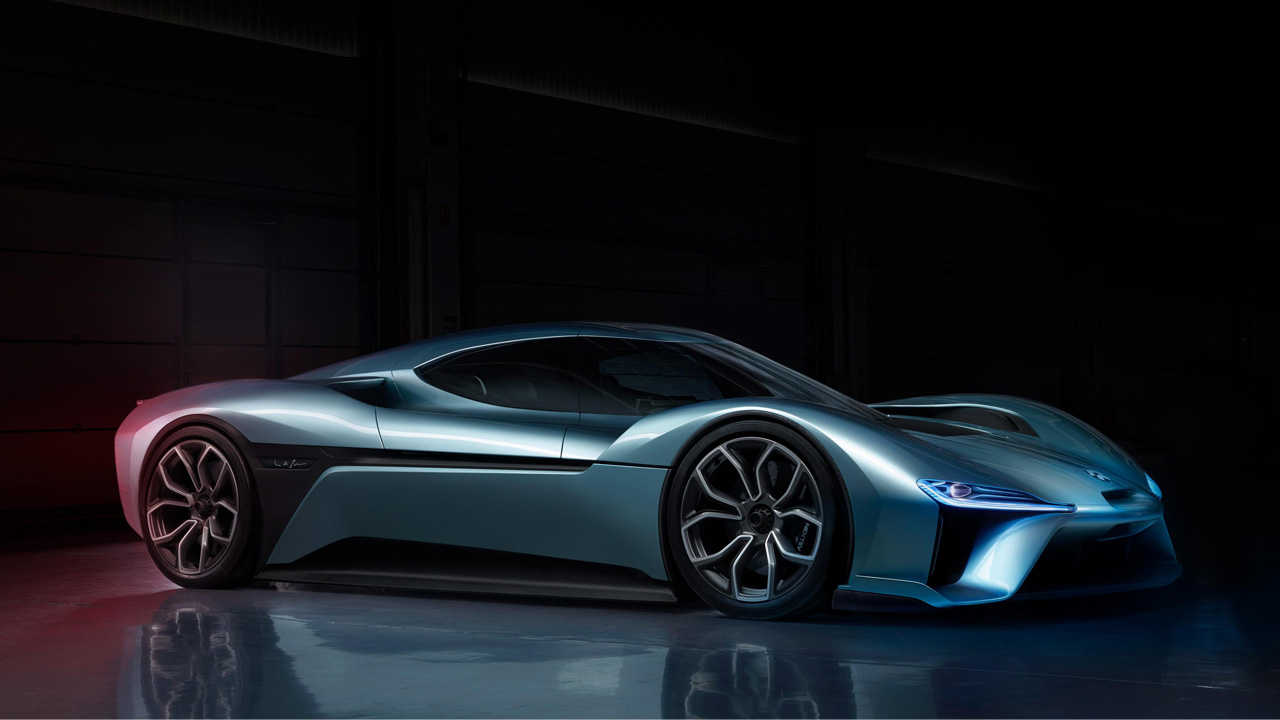
- Power: 1,341hp
- 0-60mph: 2.6 seconds
- Max speed: 196mph
Nio has garnered recognition within Formula E circles, and the EP9 benefited from the insights gained through its racing endeavors. Propelled by four electric motors generating one megawatt of power, the EP9 boasts 1341bhp, facilitating a 0–62mph acceleration in 2.7 seconds.
Impressive performance metrics extend to a 7.1-second 0–125mph time and a nearly 200mph top speed. Nio asserts a range of 265 miles on a single charge under gentle acceleration.
Should one opt for a more spirited driving approach (and possess ironclad willpower), the EP9 can tackle the Nürburgring at blistering speeds. Nio set a production electric car record at the track in 2017, clocking 6:45.9 minutes—a record held until the arrival of the Volkswagen ID.R in 2019.
Porsche Taycan Turbo S
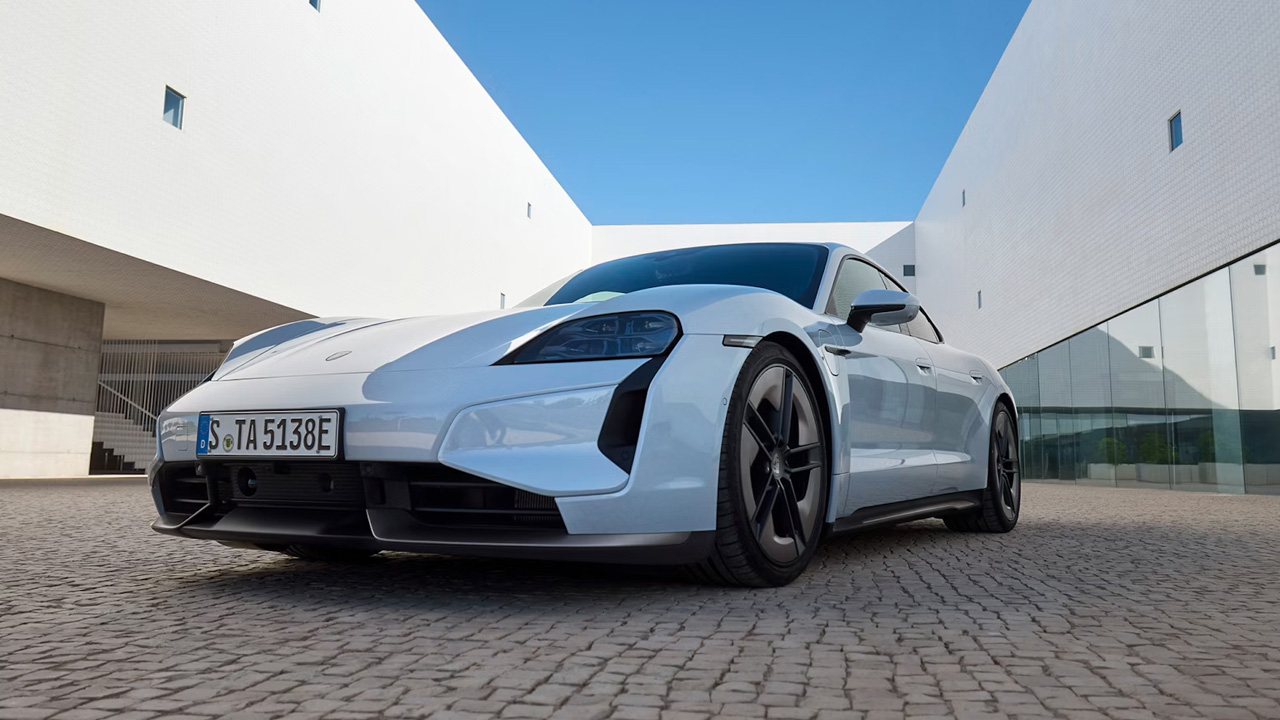
- Power: 751bhp
- 0-62mph: 2.8 seconds
- Max speed: 162mph
The Taycan left a significant impression upon its debut in 2019. It demonstrated that EVs could embody more than sheer straight line power. Leveraging 75 years of sports car expertise, the Taycan introduces levels of nimbleness and driver involvement to this spacious four-seater, addressing previous shortcomings in earlier electric cars.
This isn’t to suggest it lacks speed on a straight path. The most basic Taycan can achieve 0-62mph in 5.4 seconds, courtesy of 402bhp from its rear-mounted motor. Progress through the lineup, and this decreases to 4 seconds for the twin-motor 4S and 3.7 for the GTS.
However, the standout performer is the Taycan Turbo S with 751 brake horsepower and a 0 to 62mph run in just 2.8 seconds. Unleash it on Germany’s autobahns, and the Taycan Turbo S in the more utilitarian Cross Turismo estate variant can reach speeds of up to 162mph.
Lotus Evija
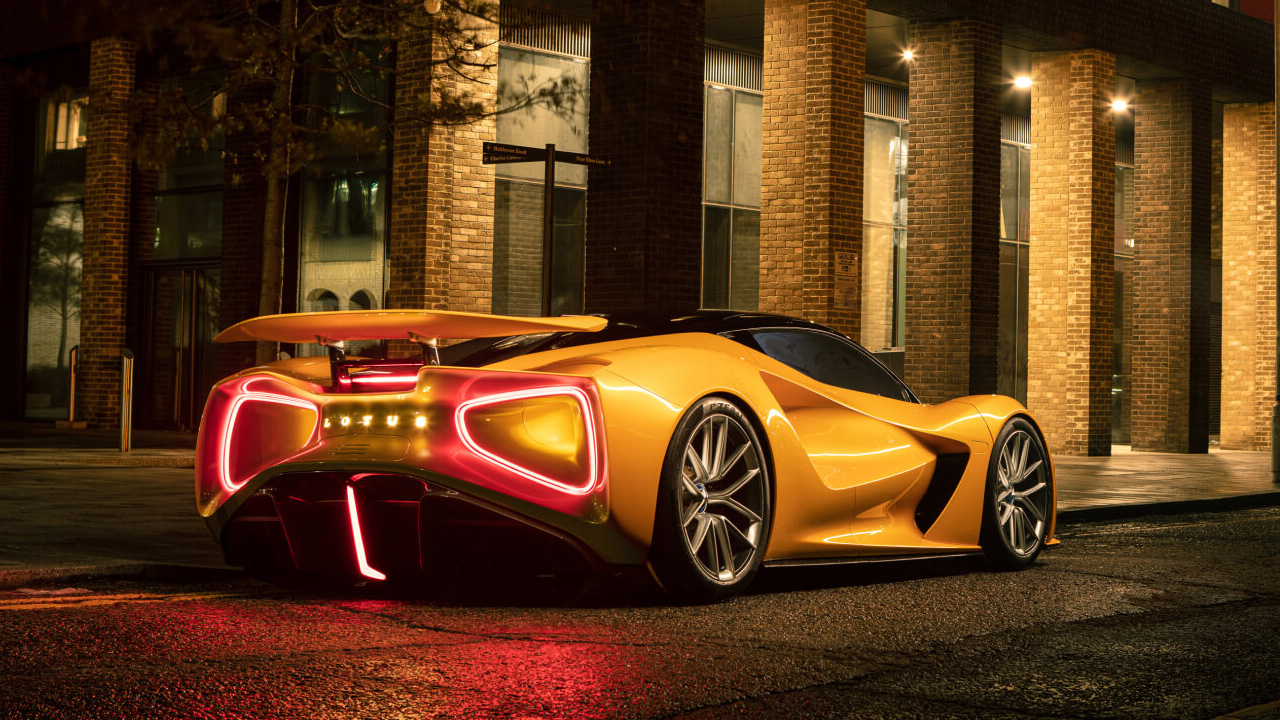
- Power: 1,973hp
- 0-60mph: under 3.0 seconds
- Max speed: 218 mph
The Lotus Evija, announced a couple of years ago, remains one of the fastest street-legal cars with its quad-motor setup delivering 1,973 horsepower and 1,254 pound-feet of torque. Priced over $3 million, it boasts carbon fiber construction for aerodynamics and can exceed 200 mph.
While its 0-60 mph time of around three seconds falls short by electric vehicle standards, its range reaches 250 miles before requiring a charge. Despite this, the Evija stands as one of the fastest electric cars globally, showcasing remarkable performance and technology at a premium price point.
Rivian R1T
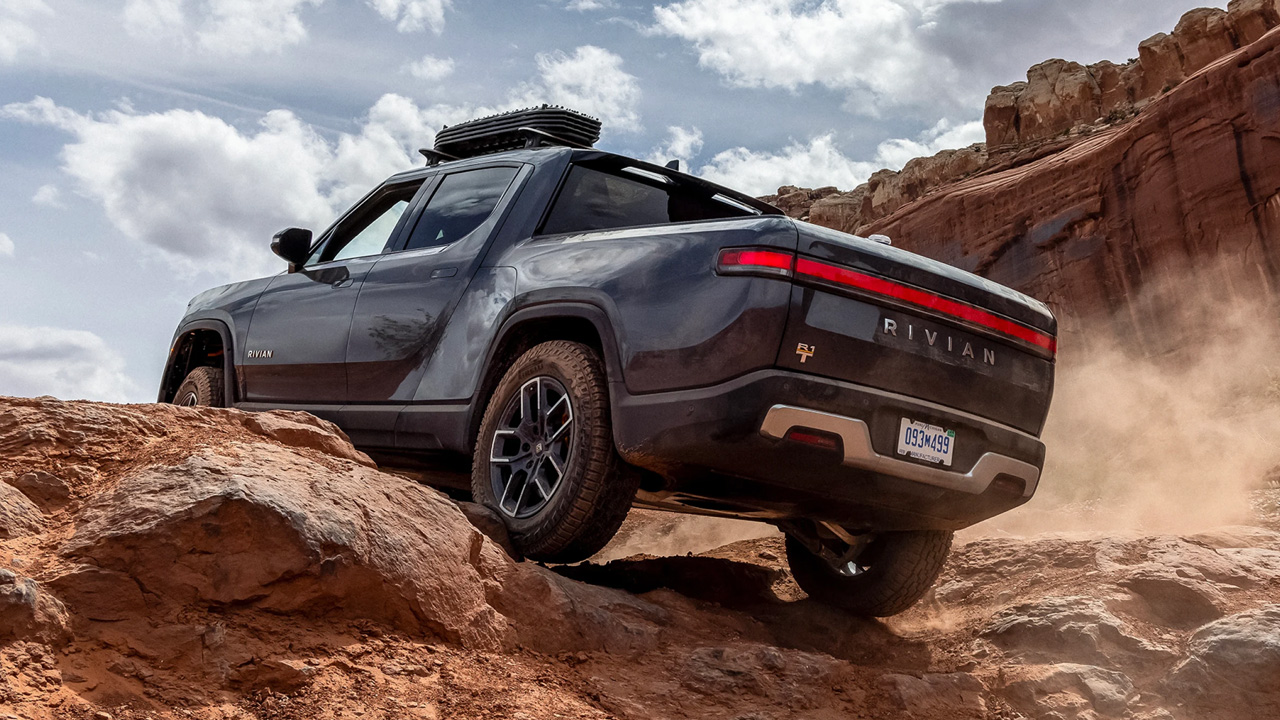
- Power: 835hp
- 0-60mph: 3.0 seconds
- Max speed: 112mph
The Rivian R1T stands out in the US pickup market with unmatched speed. With 835 horsepower and a 0-60 mph time of 3.0 seconds, it is faster than the Ford Mustang Shelby GT500. Towing up to 11,000 pounds, it operates quietly.
Competing with other electric trucks, the R1T’s gear tunnel, 220 kW DC fast charging, and impressive 410-mile range make it a top-tier electric pickup, excelling in off-road capabilities.
Tesla Model 3 Performance
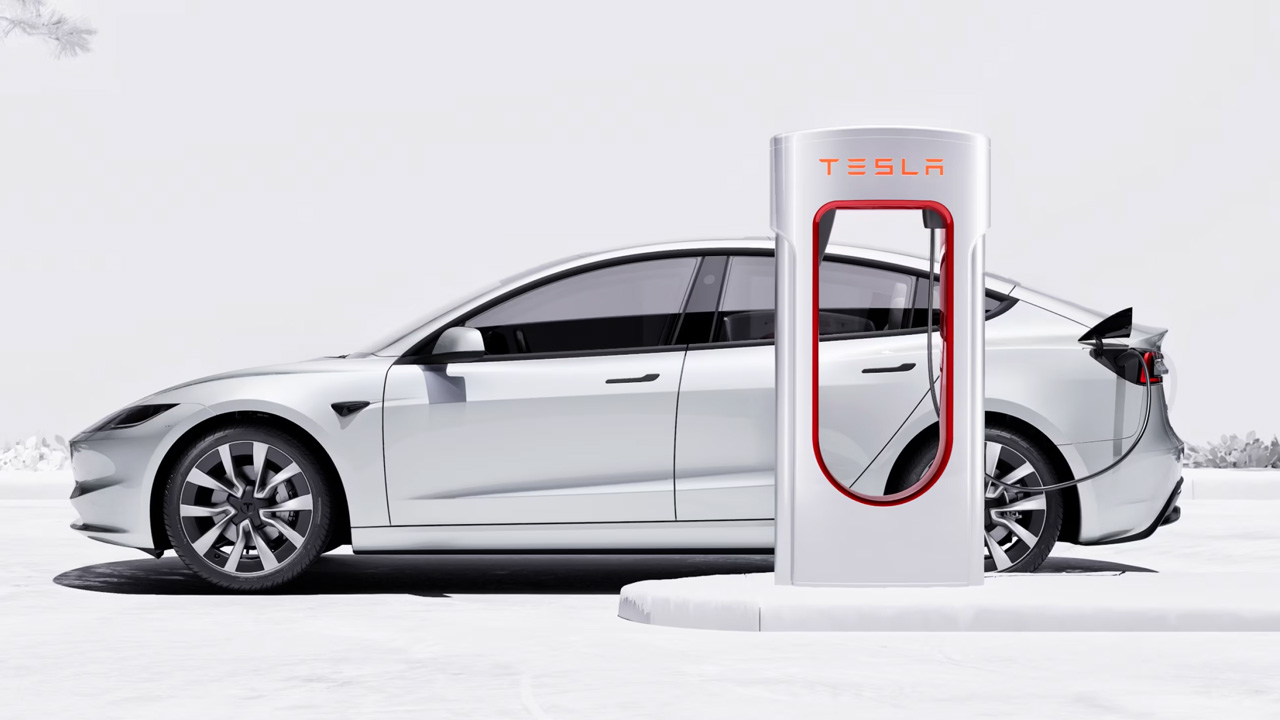
- Power: 450hp
- 0-60mph: 3.1 seconds
- Max speed: 162mph
Ignoring construction and business principles, the Tesla Model 3 persists as a formidable option in the electric performance domain. Its top-tier Performance variant harnesses dual motors for 400+ hp.
Tesla embarks on achieving a swift 3.1-second 0-60 mph and a 162-mph max velocity. While it may not rival a BMW M3’s handling on the track, the Model 3 Performance consistently triumphs in acceleration.
Audi RS e-Tron GT

- Power: 637bhp
- 0-62mph: 3.3 seconds
- Max speed: 155mph
Wrapping up our rundown is the Audi e-Tron GT. Sharing the J1 platform with the Porsche Taycan, it targets a distinct market, emphasizing touring over sheer performance, delivering power gradually.
Despite its plush feel, the GT remains remarkably swift, hitting 0–62mph in 3.3 seconds and reaching 155mph. With a WLTP range of 283 miles, opting for the standard model for an extra 13 miles isn’t worth it; we prefer speed over longer intervals between charges.
Here’s a Comparison Table of the High Speed EV Cars
| Model | Horsepower | Top Speed (mph) | Acceleration (0-60 mph) | Drive Type |
|---|---|---|---|---|
| McMurtry Speirling | 500+ | 170+ | 2.0 seconds (estimated) | AWD |
| Aspark Owl | 2012 | 249 | 1.69 seconds | AWD |
| Rimac Nevera | 1914 | 258 | 1.85 seconds | AWD |
| Tesla Roadster | 2000+ | 250+ | <1.9 seconds | AWD |
| Deus Vayanne | 1488 | 256 | 2.7 seconds | AWD |
| Tesla Model S Plaid | 1100+ | 200+ | <1.99 seconds | AWD |
| Pininfarina Battista | 1900+ | 217 | <2.0 seconds | AWD |
| Volkswagen ID. R | 671 | 168 | 2.2 seconds | AWD |
| Faraday Future FF9 | 1810 | 211 | 2.4 seconds | AWD |
| Lucid Air | 1080 | 168 | 2.5 seconds | AWD |
| Tesla Model X Plaid | 1100+ | 163 | <2.5 seconds | AWD |
| Nio EP9 | 1360 | 195 | 2.7 seconds | AWD |
| Porsche Taycan Turbo S | 750 | 161 | 2.4 seconds | AWD |
| Lotus Evija | 1973 | 200+ | <3.0 seconds | AWD |
| Rivian R1T | 800+ | 125 | 3.0 seconds (estimated) | AWD |
| Tesla Model 3 Performance | 450+ | 162 | 3.1 seconds | AWD |
| Audi RS e-Tron GT | 590 | 155 | 3.1 seconds | AWD |
Fastest EVS Car – FAQs
The McMurtry Spéirling holds the title for top speed, clocking in under 1.5 seconds from 0–60mph, but it’s solely for the track. As for road-legal electric supercars, the Aspark Owl takes the lead, accelerating from 0–60mph in a mere 1.69 seconds.
There exist a pair of competitors. The Aspark Owl accomplishes 0 to 124mph in 4.76 seconds, whereas the Rimac Nevera achieves 100mph in 4.3 seconds. Should they face off, we anticipate a closely contested match between the two vehicles.
Peruse this compilation, and you’ll discover numerous options. Included are the Evija, Battista, and Vayanne. Certain electric supercars surpass this standard by a considerable margin. The Aspark Owl reaches a maximum speed of 249mph, whereas the Rimac Nevera and Tesla Roadster exceed 250mph.
